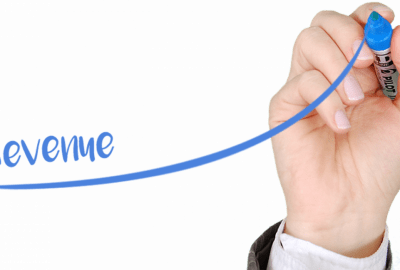Games are one of the oldest forms of entertainment used by mankind. Although usually associated with childhood, the gameplay has served to stimulate and recreate the minds of young and old people for many years.
Today, they have acquired more relevance than ever, especially video games, the latter have become one of the most lucrative industries on the planet.
With this in mind, several scientists devoted themselves to investigating why we love games so much. In doing so, they discovered very interesting things, not only do they entertain us, but they also help us process information better, and they can even help us be more productive.
It is no coincidence then that we find that in sectors such as education; gamification is being applied as a method to help students learn faster.
In business, the story is not so different. Several studies have shown that using gamification in the workplace can, among other things, make employees more motivated and improve their performance.
Hence, many companies are also considering applying gamification in their daily routine. Do you want to know exactly what benefits gamification can bring to companies? Keep reading and discover them.
What is gamification?
Before gameplay was considered the opposite of seriousness and work, however; technology has increased the need for users to entertain themselves as much as possible, even when they are executing these “serious” tasks. It is in this context that gamification is born.
Gamification is a practice that focuses on using mechanisms, dynamics or strategies of the game in a context where it does not normally belong. Whether aimed at consumers or employees; this practice aims to ensure a more attractive, complete and satisfying experience with a product, application or service.
What is the secret that makes gamification so effective?
 It has been shown that games have a positive effect on our emotions. When we play, we release dopamine, a neurotransmitter very important for our brain; which is involved in almost all our cognitive processes, and that is in charge of giving us the sensation of pleasure, happiness, regulating our memory and even improving our decision-making. The relationship between play and dopamine has to do with:
It has been shown that games have a positive effect on our emotions. When we play, we release dopamine, a neurotransmitter very important for our brain; which is involved in almost all our cognitive processes, and that is in charge of giving us the sensation of pleasure, happiness, regulating our memory and even improving our decision-making. The relationship between play and dopamine has to do with:
Rewards: It is normal for games to offer rewards to users for each achievement. Whether it’s leveling, receiving coins, earning credits; each of these rewards stimulates the user’s interest and motivates them to continue using the game.
Meeting needs: Games serve to satisfy many of our needs as human beings. The need for entertainment, for autonomy, for socialization, the need for success, the need for challenges… Games can make us feel good in many ways.
Gamification: What are the advantages for companies?
#1 Increase in productivity
Performing the same tasks every day for a long time can be daunting; especially if employees are dealing with large amounts of stress when performing these tasks. By introducing gamification into the work environment, company members can enjoy a more relaxed and recreational environment, which will give them greater motivation to do their duties, and thus increase their productivity.
#2 Improved performance
One of the most common effects of daily work routines is burnout. The gamification, by using a system of achievements, rewards, and objectives, is able to optimize the performance of the employees.
 We are not only talking about employees who do their work for a salary or for an obligation; but also about people who have a positive association towards their workplace, an association created from the effects of the game. As a result, the feeling of exhaustion will take longer to appear; which will translate into greater profits for the company.
We are not only talking about employees who do their work for a salary or for an obligation; but also about people who have a positive association towards their workplace, an association created from the effects of the game. As a result, the feeling of exhaustion will take longer to appear; which will translate into greater profits for the company.
3# Creativity
Companies’ competitiveness depends greatly on their ability to innovate. It is obvious that to innovate one needs creative and committed employees; this is exactly what gamification can achieve.
Games stimulate our creativity and our ability to solve problems; that is why in this context where generating new ideas has become so important, gamification becomes more necessary than ever.
#4 Integration and collaboration
As we said before, the games are capable of meeting several of our needs; some of them are socialization and belonging. Gamification can stimulate the collaborative spirit of employees, improve communication and motivate the development of the idea that the business objectives are also theirs.
#5 Development of concrete skills
Through gamification, companies can help their employees develop concrete skills. These can range from soft skills such as leadership skills, stress management, communication skills, negotiation skills, etc… To other skills such as fluency in English, or programming knowledge.

Among the departments that are currently benefiting most from gamification, we have human resources and customer support. The companies that integrated the dynamics of games in these areas noticed a notable increase in positive results in both departments.
The best thing is that thanks to the widespread knowledge about its advantages; many software developers are applying gamification as part of their business applications product catalog.
An example of this is Freshdesk, Freshworks’ omnichannel help desk, and flagship product. The tool has a module that allows agents to accumulate rewards each time they reach a new milestone; which undoubtedly keeps them motivated when it comes to doing their job.
Want to know more about Freshdesk? Don’t hesitate to contact us. GB Advisors is a premier partner of Freshworks in Latin America. We market their tools and also offer our customers service packages; aimed at helping them get the most out of their investment. What are you waiting for? Start now to take advantage of gamification.



